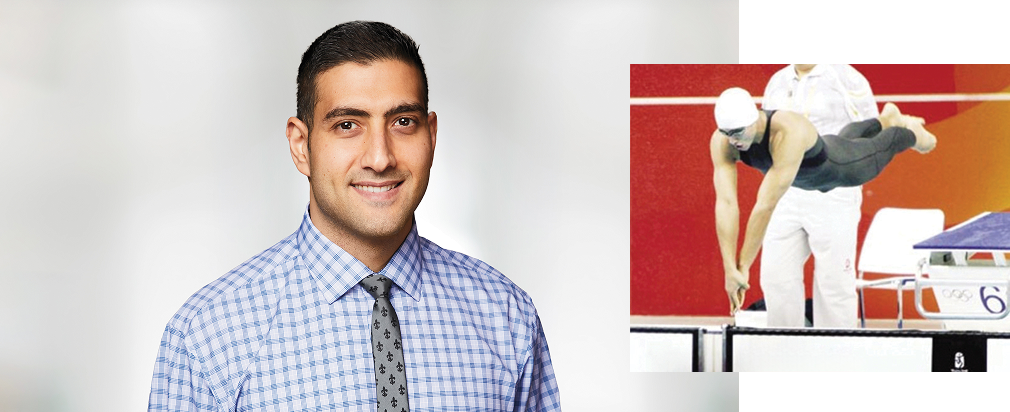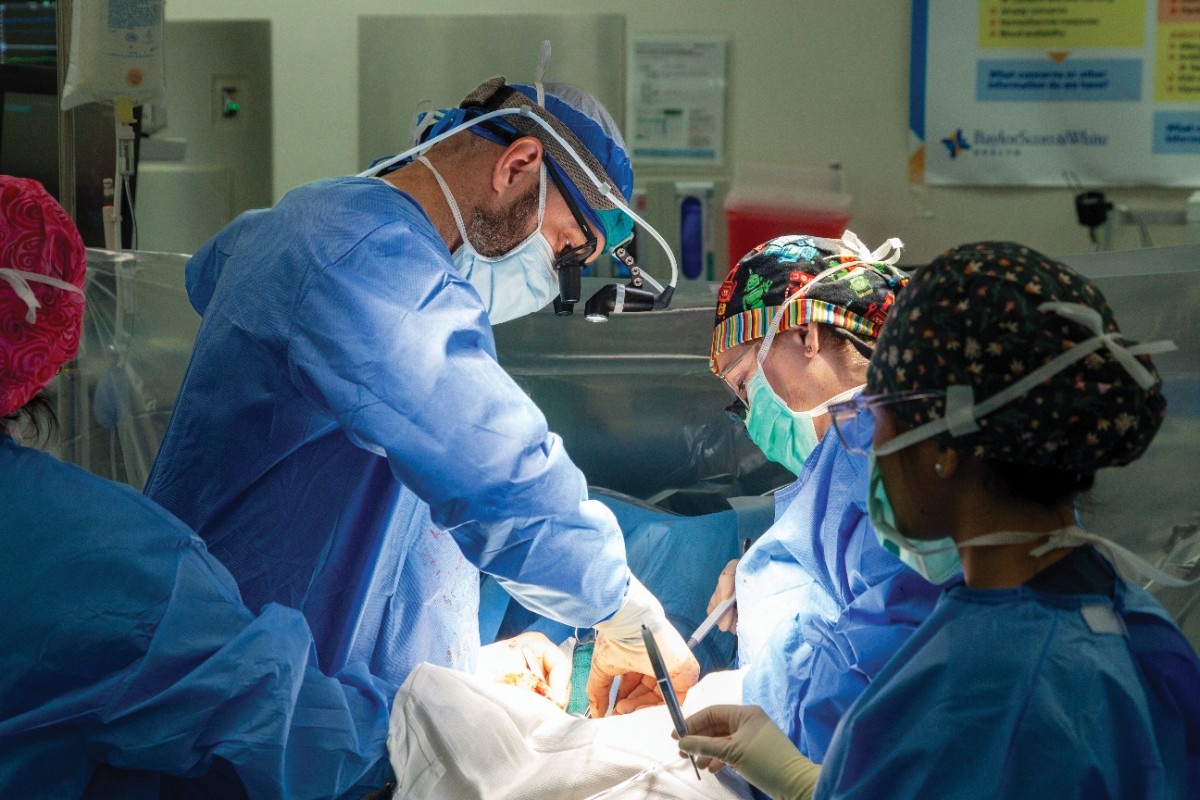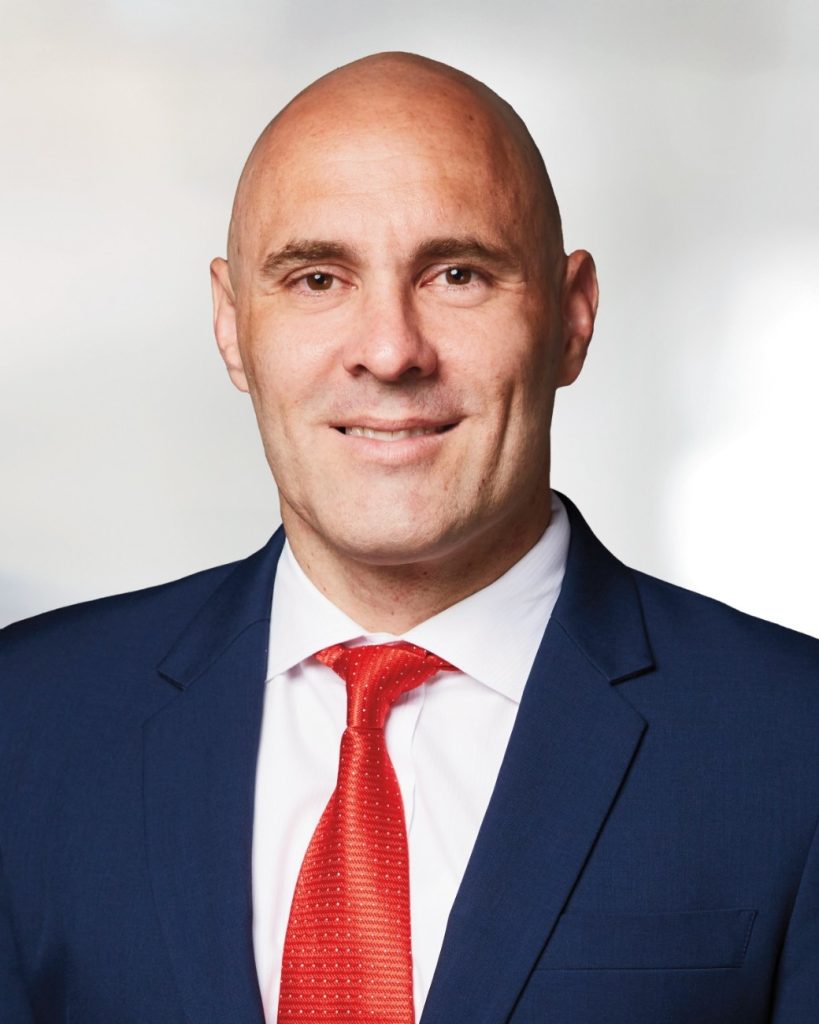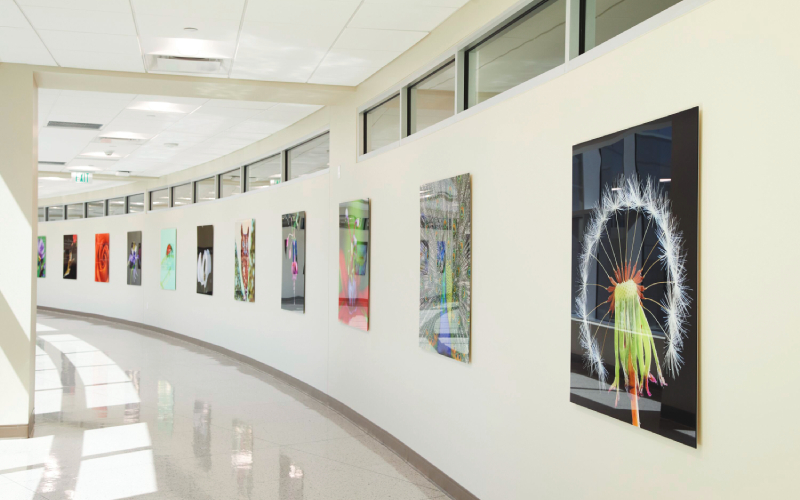Physician Stories
Meet two dedicated physicians who exemplify our mission to reshape the future of cardiovascular care.
Anas Hamadeh, MD, FACC, FSCAI: From the Olympic pool to the cardiology lab

Anas Hamadeh, MD, FACC, FSCAI
Growing up in northern Jordan as the son of two dentists, Anas Hamadeh, MD, FACC, FSCAI, an interventional cardiologist at Baylor Scott & White The Heart Hospital, was driven to succeed from a young age. When he was 7 years old, his mother recognized her son’s competitive spirit and unbridled energy. She enrolled him in karate to keep him busy and help channel that energy. However, his abilities overshadowed the others in his class. To avoid any unforeseen incident in combat sports, his mother redirected his attention to the pool. Dr. Hamadeh thrived. Little did he know that his mother’s decision would change his life.
“My first swimming competition was when I was 9 years old,” Dr. Hamadeh recalls. “Of course, at that age, I didn’t know what I wanted to do when I grew up, but I did know I liked competing. It was the most fun.”
Dedication, drive, and the will to do more
Dr. Hamadeh continued pursuing his swimming career, and at age 18, he qualified for the 50-meter freestyle event as a member of the Jordanian Olympic team. He competed in the 2008 Beijing Games.
“Before the Olympics, I knew I wanted to be a doctor because swimming wasn’t enough for me,” Dr. Hamadeh says. “I was swimming for the fun of it, but balancing studying and training was hard. I had to get good grades to be accepted into medical school. Right after the 2008 Games, I left swimming behind to concentrate on my medical career.”
Today, he looks back on his days as a swimmer and Olympic athlete with mixed emotions.
AI in Medicine
Anas Hamadeh, MD, FACC, FSCAI, an interventional cardiologist at Baylor Scott & White The Heart Hospital, sees artificial intelligence (AI) as the biggest change agent for interventional cardiology in the future.
“AI is going to change the way we practice drastically,” he says. “No one knows at this point exactly how that’s going to happen, but it’s likely to impact the way we do procedures, how we will look up information, how we make decisions while we’re doing procedures and how we get real-time feedback that will improve outcomes. I think health systems that are not seriously looking into integrating AI in their workflows are going to fall behind very quickly.”
“For me, it was a humbling experience that, for the longest time, brought negative emotions because I questioned my performance,” he says. “I didn’t place in the top three. I didn’t get a medal. Being competitive at my core, I harbored that feeling that I could have done better, and that didn’t make me feel good. It took me 15 years to come to terms with what I had accomplished and to be proud of it.”
When he was 24, after graduating from the Jordan University of Science and Technology and completing a transitional internship in internal medicine, surgery and pediatrics, Dr. Hamadeh moved to Boston for a residency in internal medicine at Tufts University. After completing the residency, he was accepted into the fellowship program for cardiovascular medicine at Baylor University Medical Center in Dallas. He followed that with a fellowship in interventional cardiology at Baylor Dallas. Like many fellowship graduates, he decided to stay in the Dallas-Fort Worth area, settling in Fort Worth and practicing at Baylor Scott & White All Saints Medical Center – Fort Worth and Baylor Scott & White Heart and Vascular Hospital – Fort Worth.
“I decided to pursue cardiac medicine because I found it interesting and intense,” Dr. Hamadeh explains. “From seeing someone in the office to making quick decisions that sometimes are a matter of life and death to reading images, it’s the mix of responsibilities I enjoy. Also, often I can fix the problem and see the results immediately, unlike other medical specialties.”
Focused on growth
When asked about his recent accomplishments as an interventional cardiologist, Dr. Hamadeh didn’t hesitate.
“My biggest accomplishment was helping establish the cardiology practice at Baylor Scott & White Heart and Vascular Hospital – Fort Worth,” he says.
Dr. Hamadeh also likes how focused Baylor Scott & White as a system is on good outcomes.
“The thing I enjoy most is being part of an organization that focuses on quality,” he says. “It’s one of the things I value most about the organization.”
What values have guided him throughout his life and career?
“I’ve always believed ego is the enemy,” Dr. Hamadeh says. “I also believe hardship is the way. If I’m stuck between two options, I always pick the harder one. Finally, complacency is to be avoided at all costs. When you stop growing, you start dying. You must be a life-long learner.”
When he’s not seeing patients, Dr. Hamadeh enjoys spending time with his wife, Daisy, a retired pharmacist, and his two sons, ages 8 and 4. He also still gets up every morning at 5 a.m. to hit the gym.
Lee Hafen, MD: Engineering precision meets cardiac surgery passion

Growing up in a small southern Nevada town, Lee Hafen, MD, cardiac surgeon at Baylor Scott & White The Heart Hospital – Plano, always knew he wanted to make a difference. By middle school, he had set his sights on becoming a physician, inspired by two prominent figures in his community: a surgeon and a family medicine doctor. For Dr. Hafen, this early vision of medicine not only shaped his goals but also his dedication.
“Everything I did starting in college and moving forward was aimed at reaching my goal—go to medical school, become a physician,” he says.
Yet, the journey would take him through unexpected terrain.
Charting a course
Entering college, Dr. Hafen decided to pursue engineering to give himself a challenge. However, after his first year, he made the tough decision to put his education on hold. He took two years off for mission work and then returned to college with a renewed focus on academics.
That dedication paid off. Dr. Hafen was the only engineering major at his school to graduate summa cum laude, and he’d gained entrance to medical school at Washington University in St. Louis.

Lee Hafen, MD
Reporting for duty
By the time he started medical school, Dr. Hafen had also started a family with his wife, Abbie. The challenges of managing high tuition while also supporting his family led to another major life decision: Dr. Hafen joined the military.
The decision opened up numerous opportunities. The military allowed him to finish medical school and complete a general surgery residency in Houston (where two of his children were born) before being sent to northern Japan. His next military assignment brought the family back to San Antonio, Texas, where Abbie and their children remained while Dr. Hafen had one final deployment to Iraq.
After three years of service, Dr. Hafen decided to return to civilian life to continue his career.
Chance connection
During his residency in Houston, Dr. Hafen met Anthony Estrera, MD, a heart surgeon who became his mentor. Once Dr. Hafen left the military, the two reconnected, and Dr. Estrera was instrumental in helping Dr. Hafen secure a fellowship position at The Heart Hospital – Plano. “Plano was where I knew I wanted to be,” Dr. Hafen says. “The surgeons there were not only good at what they did, but good people.”
Dr. Hafen’s fellowship at The Heart Hospital – Plano allowed him to work with mentors Robert Smith, MD, and Katherine Harrington, MD, who were influential in his cardiac surgery career. During that time, he also had the chance to experience a variety of subspecialties, including one he felt was tailor-made for him: robotic cardiac surgery.
“Robotic surgery is perfect for the engineer in me,” he says, noting that heart surgery, with its various devices and required understanding of blood flow mechanics and load dynamics, pairs well with his engineering knowledge.
Dr. Haven has now been with Baylor Scott & White The Heart Hospital – Plano’s team for six years, and he continues his dedication to advancing patient outcomes through innovative approaches.
The source of success
Reflecting on his demanding journey, Dr. Hafen acknowledges that he couldn’t have succeeded without Abbie and the faith communities that surrounded them wherever they lived. Both grounded him through his rigorous years of medical training and military service.
“Some days (in Houston) were so bad, I didn’t think I could get through it,” he says. “She supported me, encouraged me and kept reminding me that I was most fulfilled when working in surgery.”
Abbie’s support was also not restricted to Dr. Hafen and their four children. She knew the experience was equally challenging for other families in residency and offered to babysit for residents so they could have a moment to themselves.
Today, Dr. Hafen and Abbie have been married for 21 years. They have four children, currently ages 18, 15, 12 and 10. Additionally, they have opened their home and family to their youngest son’s best friend, who is also 10, by taking over his guardianship.
Throughout his career, one guiding principle has become clear to Dr. Hafen: His success is as much a result of skill and passion as it is the people around him. Whether through the mentorship of colleagues, the sacrifice of his family or the strength he draws from his faith, his story is one of teamwork and resilience.
Explore our culture and community initiatives
Making an impact on lives inside and outside our four walls
Previous
Next


